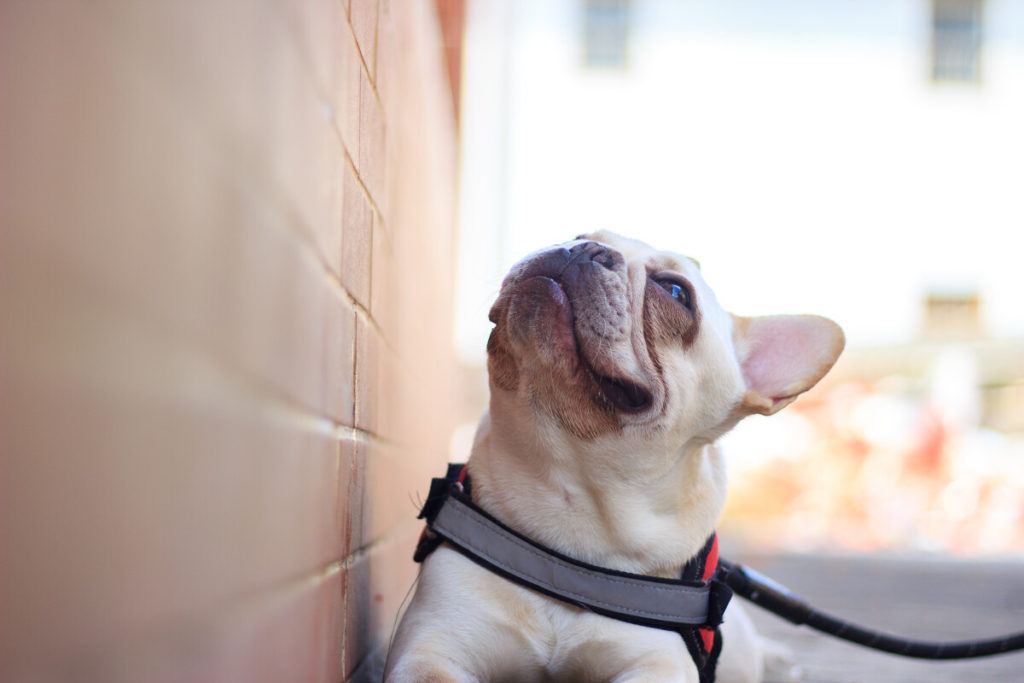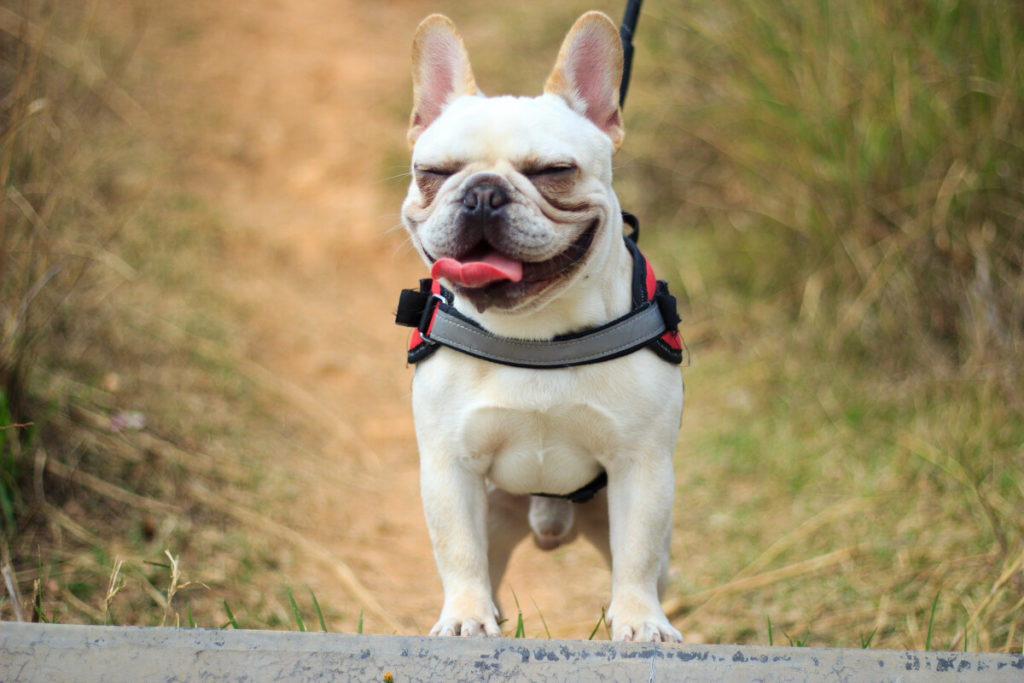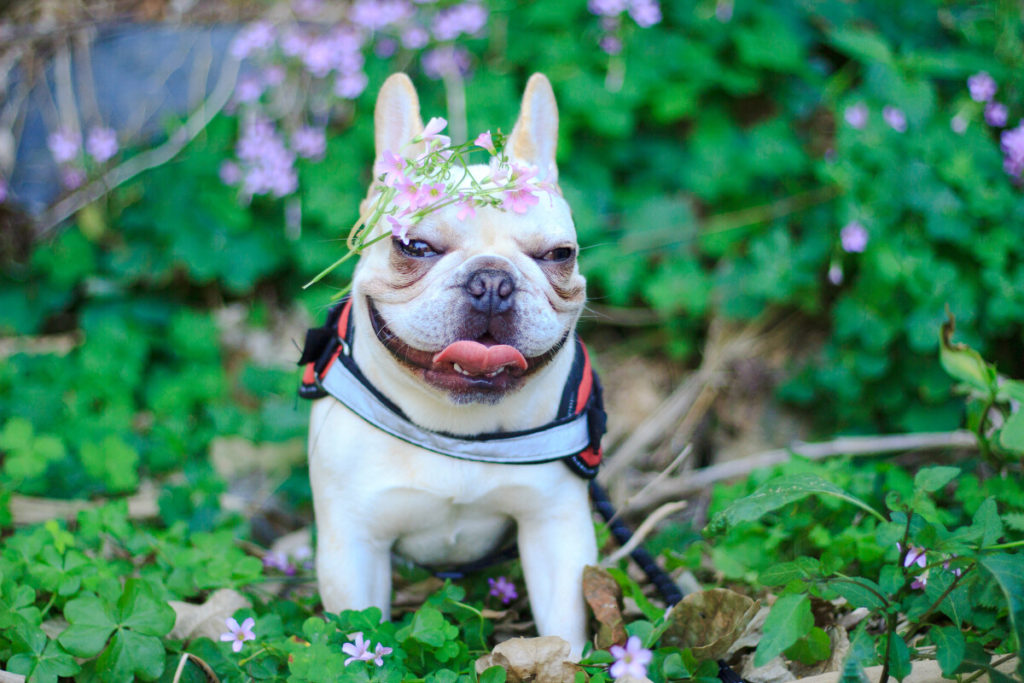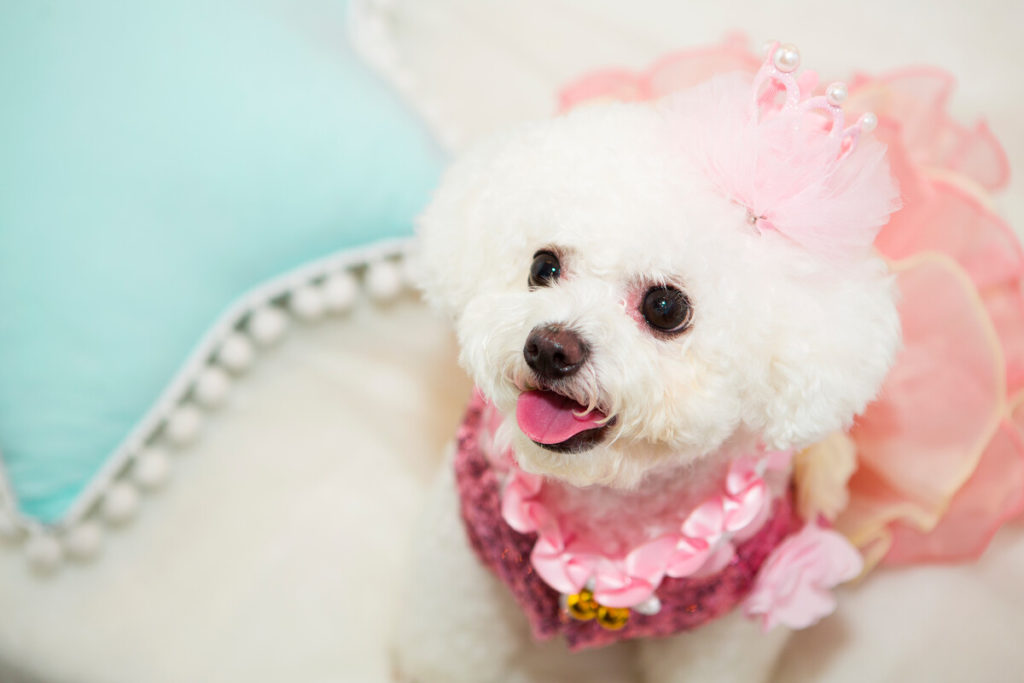The French bulldog breed is notorious for sleeping a lot, and the reasons as to why they sleep that much are many. It is said that French bulldogs often copy their owners, so if they find their owner having a snooze or lounging around, they will snuggle up next to them, yawn, and then go into a deep snore-y sleep. This is one reason why a French bulldog owner should raise their French bulldog to be active because although they do like to copy their owners and it is extremely cute to witness a French bulldog sleeping deeply, it is ideal for them to be active and receive the right amount of sleep instead of sleeping for twenty hours at a time.
HOW LONG DO FRENCH BULLDOGS SLEEP?
How long do normal healthy French bulldogs tend to sleep depends on their age, aside from other things? Here is how long does a French bulldog sleep during certain stages of their life.

NEW-BORN PUPPIES
Newly born puppies that are between one day old and three weeks old sleep the most. They only wake up to eat before going back into a deep slumber. They sleep for up to 22 whole hours per day. After the pups reach three weeks, they tend to stay up a bit longer. They will explore their surroundings, then going back to sleep for 20 to 21 hours a day.
PUPPIES
Between the ages of two to five months, French bulldog puppies tend to sleep for around 18-20 hours a day. These hours being used during the day in the form of short naps. And during the night to sleep continuously until the next day. During this time French bulldog puppies become more playful and curious, just like children wanting to play forever and not sleep. However, they do end up dozing off between play and mealtimes. The more the French bulldog puppy grows up, the shorter their sleep cycle becomes until it transitions into an adult French bulldog.
ADULT FRENCH BULLDOGS
Adult French bulldogs are found sleeping for around 14 hours a day. And these 14 hours are also divided between day and night. Short naps during the day and sleeping for 8-9 consecutive hours during the night. As discussed before, a French bulldog tends to imitate what they see their owners doing. As soon as they see the lights turned out, they will prepare for sleep, perhaps doze off even earlier than their owners, and awaken as soon as morning comes when the rest of the household is waking up and starting their day. Adult French bulldogs also fall asleep when left alone.

SENIOR FRENCH BULLDOGS
As French bulldogs age into senior French bulldogs, they start to sleep more than usual again. This is ascribable to their metabolism slowing down. They get tired a lot faster and make up for it by sleeping longer. They become less active, for instance, staying where there are instead of running towards their owner to greet them, though this does not mean that they are any less excited to see their favorite humans, it just means that they do not have as much strength compared to when they were younger.
SLEEPING PROBLEMS IN FRENCH BULLDOGS
Just like us humans, French bulldogs, and other dog breeds can also develop sleeping disorders. Here are some sleeping problems a French bulldog might encounter if some part of their health is compromised:
SNORING AND WHEEZING
French bulldogs, being a brachycephalic breed (meaning having a shorter than normal head), snores a lot. If you see your French bulldog snoring in their sleep, it means that they are uncomfortable. To remedy this, you should consider getting them a comfortable bed with a bolstered pillow that they can rest their heads on. This will open up their air passages, most likely stopping them from snoring. French bulldogs often snore when they are waking up from a deep slumber. You can tell when this happens because their snoring becomes persistent.

INSOMNIA
French bulldogs can suffer from insomnia, meaning that they struggle to fall asleep during the night. A French bulldog can be more prone to becoming an insomniac as they grow older due to having achy joints, issues with their bladders, and digestion. However, if they are younger, this sleeping disorder, causing a French bulldog to have sleepless nights often occurs if and when they are suffering from an ailment, are injured, or anxious. As their owner, it is important to ensure that their health is in tiptop shape.
SLEEP APNOEA
Overweight French bulldogs tend to suffer from this problem. Sleep apnoea can cause the French bulldog to struggle to breathe properly, causing them to wake up constantly during the night when they are supposed to sleep and snore loudly for long periods of time. This constant disturbance in their sleep can prevent them from getting to the REM stage during their sleep, as a result, making them lethargic and dazed during the day. This is why it is crucial to give your French bulldog a healthy and controlled diet to maintain their weight, perhaps even invest in a steam humidifier to help clear their airways. Sleep apnoea, when not treated can prove fatal for your French bulldog.
REM BEHAVIOR DISORDER
REM behaviour disorder causes the French bulldog to move around as if they are sleepwalking. This disorder is marked by whining, barking softly, constantly fidgeting, trembling, sometimes even standing up and bumping into objects. This can be particularly dangerous if a French bulldog’s bed is on a higher surface as they could injure themselves, hence it is better to set up their bed somewhere that is safer.

NARCOLEPSY
It is a rare disorder that the French bulldog breed among others has been exposed to. Narcolepsy in French bulldogs is characterized by muscle control loss, paralyzing the dog. This ordeal can last from several seconds to minutes at most, triggered by an upsurge of strong emotions.
While it is a known fact that the French bulldog breed sleeps a lot, as a French bulldog owner, you should ensure that they get proper amounts of sleep, and have a comfortable bed for French bulldogs specifically designed for their breed to sleep in. Another thing to know is they the French bulldog breed is not built to sleep outdoors, due to their short noses they can easily overheat in hot and humid weather and become cold during the colder months. The amount of sleep a French bulldog gets can impact their health so it is your duty as their owner, or dog parent to see to it that they sleep healthily and happily.




